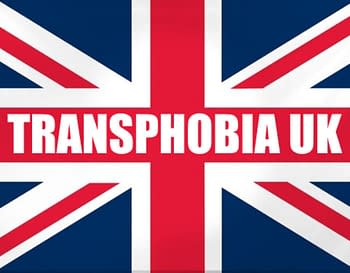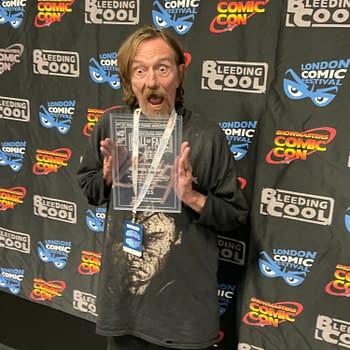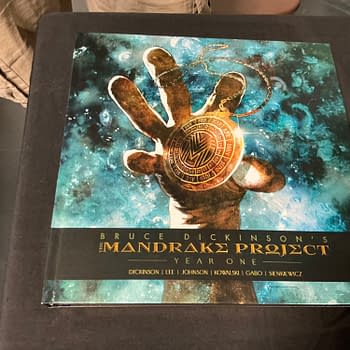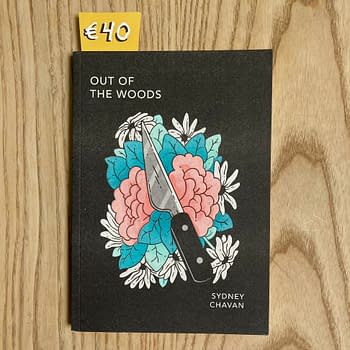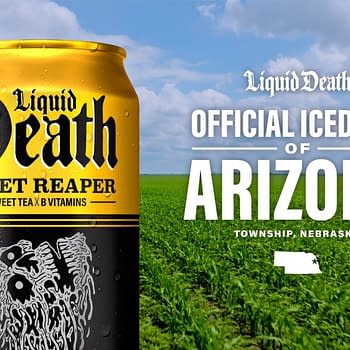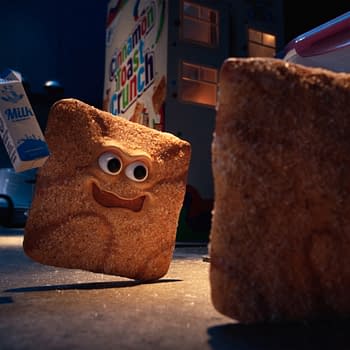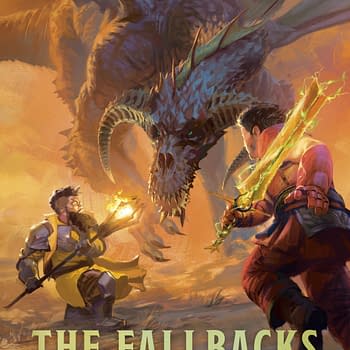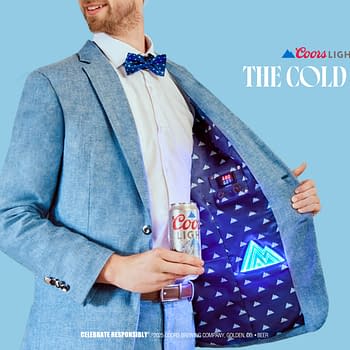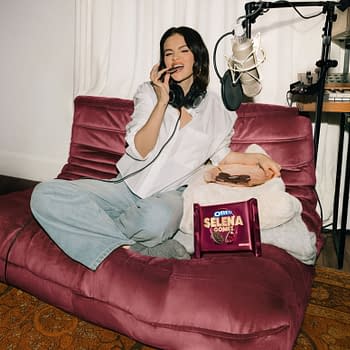Posted in: Pop Culture | Tagged: transphobia, uk
A Very British Flavour of Transphobia to Consider
Recent coverage of JK Rowling's statements about women have been criticised for transphobia, and a common question regarding other people, such as Graham Linehan, is asking how such otherwise prominent liberal folk growing up in Britain and Ireland have found themselves taking a public illiberal line on this issue? And not seeming to care who they offend in the process? And what is it about this particular part of the world that has led in this direction? After all, this is a country that has prided itself on a history of genderfluid mainstream entertainment. But that may be part of the problem.
Britain has had men dressing up as women on the stage from a time when it wasn't permitted for women to perform, so all female roles were played by men in Renaissance Theatre. While that changed in the Restoration period, actresses were seen as synonymous with sex workers, and it wasn't considered a respectable role, albeit with no such restriction on men. Men playing female parts was still common, and codified in the traditional British pantomime, which continues to this day. Lighthearted bawdy family entertainment, where the older female roles are played by men, the Pantomime Dame, as a screeching caricature of women. While conversely, young women play the 'Principal Boy', the young male role.
You'll see this continue through British radio and television comedy, notably the likes of the Goon Show, Monty Python, The Goodies and more, continuing through into Little Britain and The League Of Gentlemen, as well as stand up characters such as Lily Savage and Pauline Calf, with Eddie Izzard coming out as what he dubbed an "executive transvestite". Drag queen performers were common and gained status on British television while pop music performers such as David Bowie or Boy George continued to challenge presentation of gender stereotypes. One of the most popular British/Irish sitcoms in Mrs Brown's Boys where the writer/creator stars in the titular role.
This seemed distinct from the US mainstream experience which seemed to have a moral objection to this. The British band Queen caused much consternation in the USA with the video of I Want To Break Free, with the male band members dressed as women. The video killed the band in the US for years, but in the UK hardly caused a flutter, repeatedly shown on the BBC show Top Of The Pops.
Much of this imagery was a reflection of transvestite performances, rather that of trans people. But it seems some did not make such a distinction. As a result, when trans people became more prominent in culture and society, and the USA went through a similar level of objection and acceptance that they have as a nation to the very existence of gay people, Britain had a social and cultural problem. Rather than a lived experience, it was believed that trans people were just dressing up and not being serious. It was a performance, a game, a spot of trivial fun – either a 'trap' for straight cis men and to be feared, or something to be mocked.
That is evident in Little Britain's Emily Howard played by David Walliams, the joke being that this was just a man dressing up as a woman for kicks, and insisting everyone treat him as a woman, when he was clearly not. That was the extent of the joke, and its hard to see anything but transphobia only a few years later. The League Of Gentlemen's Barbara, on the radio was a cab driver with a rough masculine-sounding voice who insisted on talking about her reassignment surgery (BBC YouTube clips of her have been removed.) The joke was a similar one, though no one misgendered her and, later, her voice was also changed through surgery. For the TV series, Barbara was shown solely through close-ups of overtly-masculine shots – big hands, hairy chest, Adam's apple, hairy eyebrows, etc. The joke was that Barbara was deluding herself – and her name became a common insult used against trans women, as was Emily Howard's catchphrase, 'I'm a lady.'
So while cross-dressing and gender fluidity was a far more common British trope, including everything from The Rocky Horror Show to Tittytittybangbang, it was a joke, not to be taken seriously. And when it was taken seriously, well that wouldn't do. It's just a joke after all. Modern British transphobia may, ironically, stem from a very public acceptance and celebration of transvestism.
This may be why in Britain, not just a tolerance but celebration of trans identities is far more common among the young. They didn't grow up with trans just being a joke – and can see people's lived experiences instead. Hopefully, with sitcoms such as Boy Meets Girl, that attitude can continue to spread. And if we have to sacrifice Little Britain on the altar of political correctness, that's probably a fair exchange.
